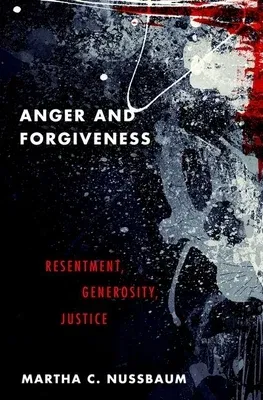Anger is not just ubiquitous, it is also popular. Many people think it
is impossible to care sufficiently for justice without anger at
injustice. Many believe that it is impossible for individuals to
vindicate their own self-respect or to move beyond an injury without
anger. To not feel anger in those cases would be considered suspect. Is
this how we should think about anger, or is anger above all a disease,
deforming both the personal and the political?
In this wide-ranging book, Martha C. Nussbaum, one of our leading public
intellectuals, argues that anger is conceptually confused and
normatively pernicious. It assumes that the suffering of the wrongdoer
restores the thing that was damaged, and it betrays an all-too-lively
interest in relative status and humiliation. Studying anger in intimate
relationships, casual daily interactions, the workplace, the criminal
justice system, and movements for social transformation, Nussbaum shows
that anger's core ideas are both infantile and harmful.
Is forgiveness the best way of transcending anger? Nussbaum examines
different conceptions of this much-sentimentalized notion, both in the
Jewish and Christian traditions and in secular morality. Some forms of
forgiveness are ethically promising, she claims, but others are subtle
allies of retribution: those that exact a performance of contrition and
abasement as a condition of waiving angry feelings. In general, she
argues, a spirit of generosity (combined, in some cases, with a reliance
on impartial welfare-oriented legal institutions) is the best way to
respond to injury. Applied to the personal and the political realms,
Nussbaum's profoundly insightful and erudite view of anger and
forgiveness puts both in a startling new light.

